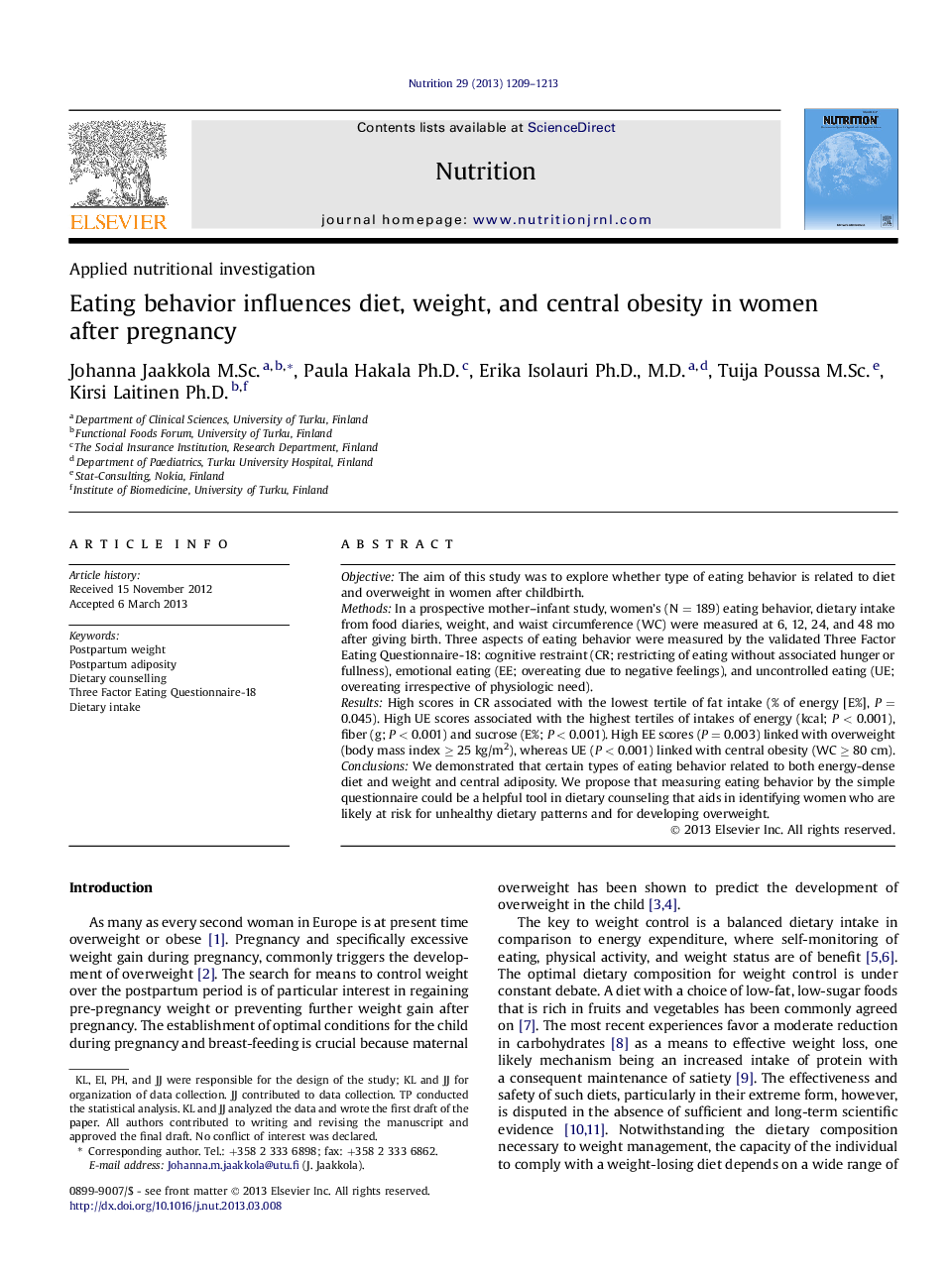| Article ID | Journal | Published Year | Pages | File Type |
|---|---|---|---|---|
| 3276413 | Nutrition | 2013 | 5 Pages |
ObjectiveThe aim of this study was to explore whether type of eating behavior is related to diet and overweight in women after childbirth.MethodsIn a prospective mother–infant study, women's (N = 189) eating behavior, dietary intake from food diaries, weight, and waist circumference (WC) were measured at 6, 12, 24, and 48 mo after giving birth. Three aspects of eating behavior were measured by the validated Three Factor Eating Questionnaire-18: cognitive restraint (CR; restricting of eating without associated hunger or fullness), emotional eating (EE; overeating due to negative feelings), and uncontrolled eating (UE; overeating irrespective of physiologic need).ResultsHigh scores in CR associated with the lowest tertile of fat intake (% of energy [E%], P = 0.045). High UE scores associated with the highest tertiles of intakes of energy (kcal; P < 0.001), fiber (g; P < 0.001) and sucrose (E%; P < 0.001). High EE scores (P = 0.003) linked with overweight (body mass index ≥ 25 kg/m2), whereas UE (P < 0.001) linked with central obesity (WC ≥ 80 cm).ConclusionsWe demonstrated that certain types of eating behavior related to both energy-dense diet and weight and central adiposity. We propose that measuring eating behavior by the simple questionnaire could be a helpful tool in dietary counseling that aids in identifying women who are likely at risk for unhealthy dietary patterns and for developing overweight.
